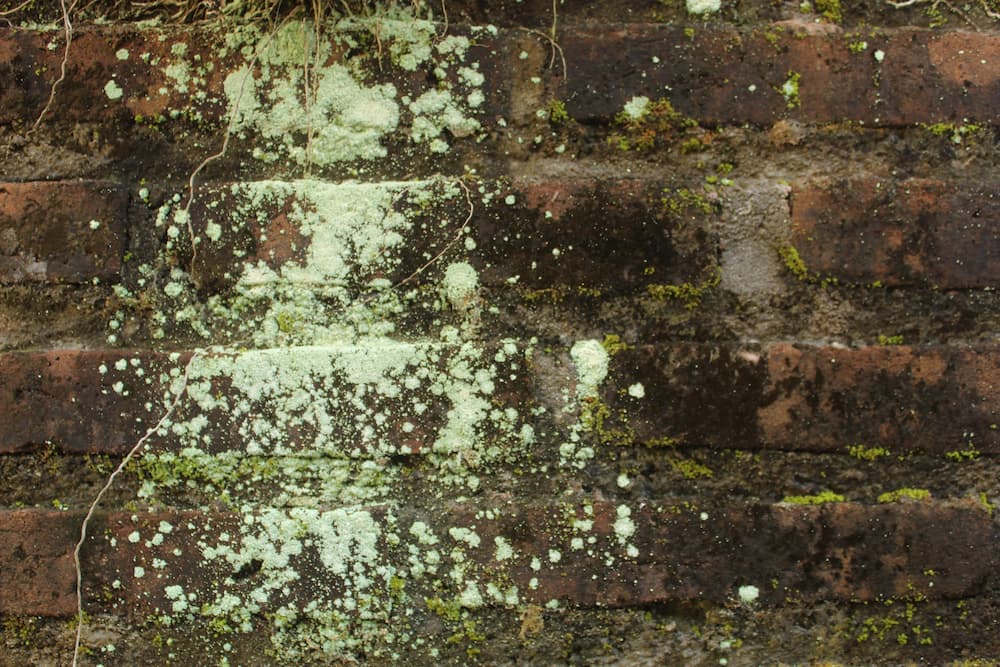There is something inherently lovely about ivy growing up in a brick home, even if it’s a little hard on your bricks. But there is nothing attractive about mold on bricks. While often green or blue, mold can also be brown, yellow, orange, or black. It grows fuzzy and sometimes in unusual forms from the porous holes in your brick and the gaps in your mortar.
Mold on a brick wall is not just harmful to your wall but also a health hazard to your family and your neighborhood. Fortunately, you can carefully remove mold from bricks with the proper process, and
Brick Experts can help. This helpful guide will walk you through how to clean mold from bricks on your Dallas home and how to keep it away.
What is Mold? And Why Should I Clean It From Bricks?
Mold is a unique type of fungus that spreads through microscopic spores. In the wild, it breaks down organic matter like fallen trees by growing on moist and porous surfaces. While mold cannot eat brick, it can take root there, living on available moisture and a thin layer of dirt that often forms over outdoor brick walls.
While mold has a purpose in a wild ecosystem, it is dangerous to humans and pets. Mold spores cause intense allergic reactions, including breathing problems, headaches, hives, and even long-term damage if you breathe in air heavily saturated with invisible mold spores. Cleaning it from your bricks will make your home safer and allow you to perform
brick restoration where porous surfaces enable mold to grow.
How to Remove Mold From Bricks
Removing mold means you must kill the mold colonies and wash away the mold forms and all its spores as safely as possible. Fortunately, you can do this with ordinary household vinegar or commercial mold cleaners. You will also need protective gear for yourself and your garden.
Supplies
- Garden Hose
- Vinegar or Mold Remover
- Large Scrub Brush
- Gloves, Goggles, and Face Mask
- Tarps for Nearby Plants
- Find the Moisture Source
In Dallas, the humidity is not traditionally high enough to nurture mold growth on brick. So there is likely another moisture source nearby. It might be a broken roof gutter, a nearby plumbing leak, or a place where moisture is trapped and builds up. Look for ways to repair or prevent moisture from continuing to saturate the area, or mold will regrow once it is removed.
- Wear and Lay Down Protection
Wear protective gear, especially over your hands, eyes, nose, and mouth. Mold can cause intense allergic reactions and can even be toxic. You may also want to lay down tarps to protect nearby grass or flower beds before you apply your mold cleaner, which can also kill other plant life.
- Apply Mold Remover
Commercial mold remover blends or a potent mix of white vinegar can kill mold and make the brick less habitable to mold in the future. Spray down the entire moldy area up to a foot on each side of the visible mold and let it soak in for a few minutes.
- Scrub and Remove
Use your scrub brush or long-handled scrubbing broom to scrub and scrape the mold off of your wall.
- Rinse & Repeat
Use the garden hose to rinse all the mold and mold cleaner from your wall. There will likely be more to remove, so continue steps 5 and 6 until the job is done. Then soak the wall in mold remover or strong vinegar and let it penetrate the brick wall deeper over time.
Use the garden hose to rinse all the mold and mold cleaner from your wall. There will likely be more to remove, so continue steps 5 and 6 until the job is done. Then soak the wall in mold remover or strong vinegar and let it penetrate the brick wall deeper over time.
Mold Can Be Dangerous
Depending on the type of mold and your body's reactions, mold can be hazardous. Because you can't easily identify whether this mold on your brick wall is toxic, protecting yourself and nearby plant life from puffs of spores or the run-off when you wash and scrub it away is best. If you do not have experience and/or full protective gear, it's best to have professionals clean mold off a brick wall, with needed brick restoration services to repair any damage that may have been caused by the mold.
Contact the Brick Masonry Pros in Dallas-Fort Worth
You don't have to deal with mold on bricks alone. If mold is growing on your brick wall indoors or outdoors in the
Dallas-Fort Worth area, Brick Experts can help.
Contact us for brick restoration services, including cleaning unwanted fungus and mold growth from the porous outer layer of your brick wall. Our team will use proper protection and professional mold removal techniques to ensure your home is safe and keep it that way. We will then restore your brick wall of missing mortar and other damage so that it is less susceptible to mold in the future.
Contact us for more information or a consultation for your brickwork.










